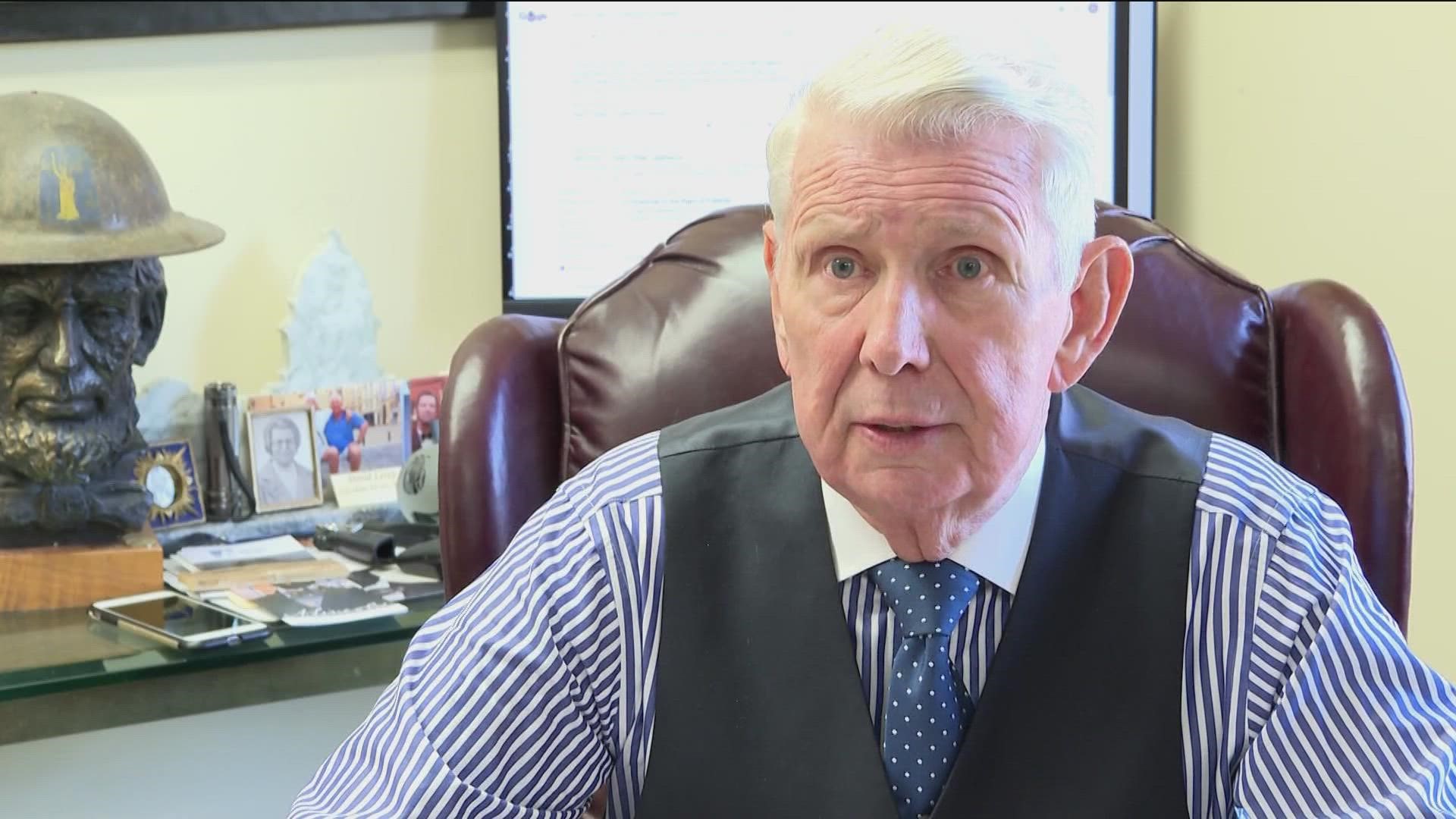BOISE, Idaho — Idaho's abortion laws are set for a few changes over the next week. There are three separate laws that are all in different stages of enforcement.
There is a chance the situation changes again on Monday, that's because a judge will hear arguments from the Department of Justice (DOJ) as to why they believe the law should be blocked.
As of Tuesday, Idaho has two laws waiting to kick in, while one civil law is already on the books.
The civil enforcement law went into effect last Friday. It passed the legislature earlier this year as Senate Bill 1309. It allows specific family members of a "pre-born" child to sue a medical professional for performing an abortion after about 6-weeks of pregnancy for at least $20,000.
The law allows lawsuits to be filed up to 4 years after an abortion, it's enforced by the courts, not to be confused with the criminal abortion laws waiting to go into effect.
So what about the other laws?
On Friday of this week, the criminal 6-week ban on abortion goes into effect.
That law was triggered in July after a lower court decision, with a countdown clock of 30 days. That law was paused by the Idaho supreme court for a time, but that pause, or stay, was removed Friday.
The third law, Idaho’s essential ban on all abortions with a few exceptions, goes into effect next week, august 25th.
So, for a little less than a week, Idaho will have a criminal abortion ban set at 6 weeks, then next week, the law will reflect the trigger provisions: no abortions except for cases of rape or incest reported to law enforcement, or a medical emergency to save the life of the mother.
All of that could change again as soon as Monday, the State of Idaho will appear in court against the United States of America. The U.S. Department of Justice is suing Idaho over the almost complete ban on abortions.
The DOJ argues that the Idaho law contradicts a federal law that basically says medical providers that accept Medicare funds need to provide emergency care for people in serious jeopardy, that includes emergency abortion care.
The Idaho law has a higher bar to allow an abortion, the mother's life needs to be stake. The DOJ argues that higher bar conflicts with federal law, named Emergency Medical Treatment and Labor Law (EMTALA).
So on Monday the DOJ vs Idaho battle continues in U.S. District Court.
A major conversation will be about the ‘supremacy clause’ in the U.S. Constitution. KTVB spoke with former Idaho Attorney General and Idaho law expert Dave Leroy, he explains the supremacy clause and the bar the DOJ likely needs to meet Monday.
“In short, the supremacy clause is the rule that federal law will win over state law, but only if the federal government has specific authority in that area. You don't just get off if you're a fed or the Department of Justice, a pass on that kind of argument. First of all, you have to determine whether the federal government has a legitimate regulatory interest in that area, and they probably do here. But, secondly, you have to prove that both of those laws can’t exist together and to argue that something that goes on in an emergency room has to outlaw every other application of Idaho law. That's going to be a heavy burden for the federal government,” Leroy said.
So, what results can happen Monday?
A major one, the law in question can be paused by a judge. To be clear, that is just the trigger law, the 6-week ban is not part of the discussion Monday. Leroy details the possibility of a pause, and why it may be tough for the DOJ to do.
"A U.S. District Court judge, as has been done around the country and various other states laws, can always issue an injunction if there is some immediate, irreparable harm found and a likelihood that the federal government would prevail. State law can be intercepted and suspended for a temporary period until a final decision is had. That is a theoretical possibility, but it's a possibility that the Idaho Supreme Court has already rejected once. And the federal courts tend to look to supreme courts of states for guidance about interpreting state law,” Leroy said.
The Idaho supreme court is in the background of this all, they will hear arguments in September on all three Idaho abortion laws.
Join 'The 208' conversation:
- Text us at (208) 321-5614
- E-mail us at the208@ktvb.com
- Join our The 208 Facebook group: https://www.facebook.com/groups/the208KTVB/
- Follow us on Twitter: @the208KTVB or tweet #the208 and #SoIdaho
- Follow us on Instagram: @the208KTVB
- Bookmark our landing page: /the-208
- Still reading this list? We're on YouTube, too:

